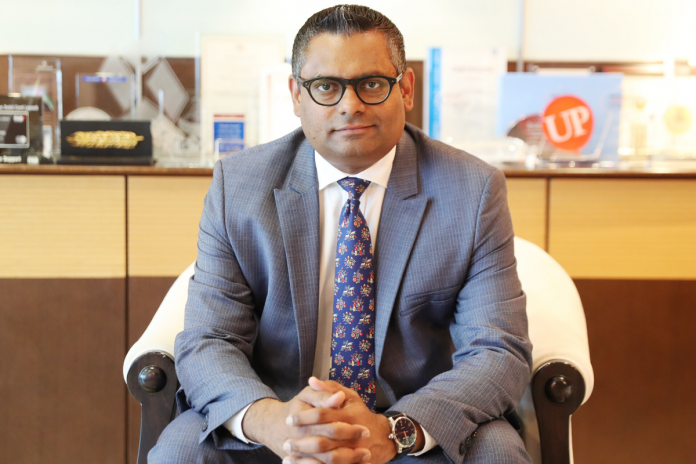Around 71% of UAE consumers now use digital payments over cash when shopping at stores.
That was the finding of a study announced in June that was conducted by Dubai Police, Dubai Economy and Visa. The announcement is perhaps ‘the tipping point’ and the indicative moment in the UAE when digital payments truly became the accepted norm. But it is imperative to state at this juncture that although the effects of COVID-19 may have accelerated digital transformation across many sectors in the UAE, cash remains an important means of payment.
Digital payment is, however, not just the future but the present – as those UAE consumer figures indicate. The survey also highlighted that 43 per cent of consumers in the UAE will continue using contactless payments more in stores and some 48 per cent will increase their use of online payments with cards or digital wallets for future e-commerce purchases.
The increasing shift to online purchasing and digital payments, brought about by health and safety regulations and indeed necessity through the effects of the pandemic, provide a vital take-away for businesses planning future strategies for consumers.
First Abu Dhabi Bank (FAB) has a plethora of digital initiatives with long-term investment in the fields of technology and digital investments. These have been readily received by customers and include the use of payit, a mobile wallet app that eliminates the need for cash. We also recently launched a new “payment as a platform” for merchants, consolidating a full range of payment needs into a single, digital-first package. Added to that was the launch of the ‘Abu Dhabi Government Digital Payment platform’ (ADPay) in collaboration with the Abu Dhabi Smart Solutions and Services Authority (ADSSSA). It aims to simplify digital payment for both customers and investors in the UAE. The platform consolidates payment interfaces across all government channels to one destination, enabling users to register using a unified access and verification system. FAB was first in the UAE to adopt to changing requirements post COVID-19, and to launch a fully contactless digital invoicing solution for all merchants. We have also embarked on solution for schools, restaurants and many other industries. We had a huge increase in new merchants especially in the e-commerce space.
The rise towards a cashless economy is helped by the rise of fintechs, which FAB sees through the guise of a partnership lens. Fintechs – with an ecosystem developing rapidly in the UAE – benefit from using our financial stability, scale, client access and industry know-how, while FAB uses the expertise and agility of Fintechs to come up with new applied technologies and innovations.
The UAE’s cashless economy drive has moved forward for many years, and the benefits to cashless economies are plentiful. A cashless economy can help close the financial inclusion gap and boost transparency across a wide range of areas. They also provide less friction and would significantly assist in tax collection, an area which has seen some growth in the GCC over the past few years. Through our fully featured digital wallet payit, we are launching a campaign for domestic workers to boost financial inclusion and to substantially reduce cash and contact.
There are areas that still need to be worked at, however. There is still a misguided perception among SMEs and merchants that cash is easy and costs less. SMEs and consumers need to understand that handling cash is much more costly and inefficient. The other aspect is customer awareness and education that digital solutions are secure, safe and reliable.
It is important to remember that a totally cashless society is perhaps further off than many may imagine. While COVID-19 may have accelerated digital payments, it also showed just how important cash remains, especially to un-banked groups. This is something that we have taken into consideration with many of our “soon-to-launch” initiatives, as we worked towards supporting our communities and in extending banking services to all groups of society.
There is still some way to go to ensure a transition to a completely cashless economy, but we are definitely on the right track to getting there!






